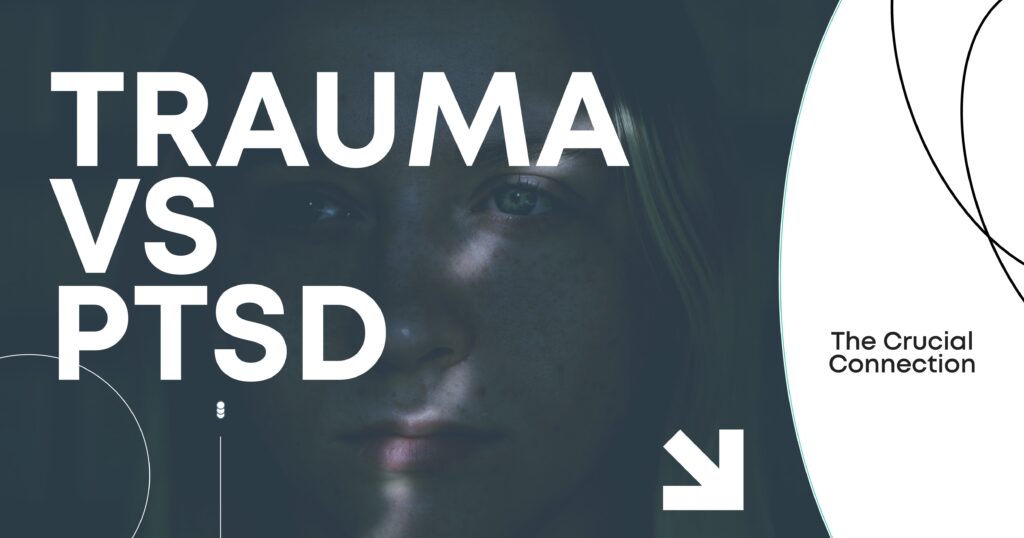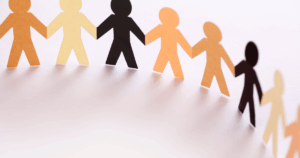Psychological impacts of traumatic events may impact the human mind, which in some cases leads to other significant diseases like post-traumatic stress disorder (PTSD). However, it is to be known that Trauma and PTSD cannot be considered equal, although there is a close relation between them. The impression of the difference between trauma and PTSD can assist in the creation of effective routes to mental wellness and emotional recovery of individuals, their relatives, and their careers.
Understanding Trauma and PTSD
There is a tendency to use the concepts of trauma and PTSD interchangeably, whereas they differ in nature as psychological experiences. Trauma is a condition of feeling overwhelmed by a highly distressing or disturbing experience – anything from natural calamities to violence or accidents.
On the other hand, PTSD is a stress disorder that occurs in certain people because of exposure to or observation of trauma. The Mayo Clinic has shared more insight on Post-Traumatic Stress Disorder (PTSD) for a better understanding.
Mental Health Center of San Diego
What is PTSD? Breaking Down Post-Traumatic Stress Disorder
Post-traumatic stress disorder (PTSD) is a diagnosis that is recognized by persistent and intense responses to trauma. Though the effects of trauma as such may result in instant shock, fear, or sadness, PTSD may take place in the course of weeks or months or even years. Symptoms often include:
- Flashbacks or intrusive memories.
- Avoiding reminders related to the trauma.
- Depressive changes in mood or thinking.
- Increased alertness, irritability, and poor sleep.
The mental implications of PTSD are much deeper than the initial trauma reaction. Not only does it distort the daily routine, but it can also transform the very perception people have of themselves, others, and the world around them altogether.
The Crucial Connection Between Trauma and PTSD
The link between trauma vs. PTSD is significant yet nuanced. Trauma is the starting point, but not everyone who experiences trauma will develop PTSD. For example, two people may survive the same car accident, but only one may later develop PTSD.
Why Not Everyone with Trauma Develops PTSD
The factors affecting the development of trauma into PTSD include resilience, coping skills, biological factors, and the support systems in society. Trauma is usually better processed by individuals who have good coping skills, receive trauma therapy, or have supportive environments. In the meantime, the less fortunate ones might be left in uncertainty.
According to a study by the National Institute of Mental Health (NIMH), although almost all people experience trauma at some stage in their lifetime, only between 7 and 8% will develop PTSD. It demonstrates that the existence of trauma does not predetermine PTSD.

Psychological Impact of Trauma vs PTSD
Comparison of the psychological effects of trauma and PTSD can be explained by referring to the manner in which the symptoms manifest and change in the course of time. Trauma is a temporary effect on emotional and physical reactions, but PTSD is more disturbing and lasting.
Common Emotional and Physical Responses to Trauma
Some of the most typical reactions that individuals might have following their traumas are as follows:
- Shock and Disbelief.
- Fear and Anxiety.
- Physical Symptoms, Including Headaches, Stomach Pain, or Fatigue.
- Numbing or Withdrawal of Emotions.
These are the normal body defense mechanisms, which are, in response to a disturbing experience, meant to shield and stabilize the mind. These feelings are normally overcome with time, support, and healthy resilience-building.
However, these symptoms can denote the probability of PTSD when they persist and deteriorate. Unlike the traumatic reactions, which dissipate, the PTSD symptoms can escalate to the extent of impairing work, human interaction, and quality of life.
Comparing Trauma and PTSD: A Clearer Perspective
To better understand trauma vs PTSD, the following table highlights their differences:
| Aspect | Trauma | PTSD |
| Definition | Emotional response to distressing events | Clinical disorder triggered by trauma |
| Duration | Usually short-term | Long-term, often months or years |
| Symptoms | Shock, fear, sadness, anxiety | Flashbacks, avoidance, mood changes, hyperarousal |
| Impact on Functioning | Temporary disruption | Significant impairment in daily life |
| Treatment Approach | Support, coping strategies, counseling | Specialized stress disorder treatment, often therapy + medication |
Mental Health Center of San Diego
Choose the Right Approach for Mental Health Recovery at Mental Health Center of San Diego
Personal care is necessary in order to treat trauma and PTSD. Despite the effectiveness of early interventions, such as counseling and coping strategies, in trauma treatment, PTSD might require a more patient-specific intervention, such as treatment of trauma or evidence-based interventions, such as cognitive behavioral therapy (CBT) and eye movement desensitization and processing (EMDR).
The team will provide personalized treatment models in accordance with the strategy of emotional healing, resilience development, and long-term mental recovery. Regarding coping with the consequences of the traumatic experience or struggling with the chronic PTSD symptoms, having the help of a professional makes the process a bit easier.
Contact Mental Health Center of San Diego when you (or a loved one) need help.

FAQs
What are the key differences between Type A and Type B personalities?
Type A personalities are competitive, urgent, and driven, while Type B personalities are typically relaxed, patient, and easygoing. Such differences affect the individual stress coping and day-to-day stress coping of each personality type.
How do the characteristics of Type A personalities compare to those of Type B?
When subjected to high pressure, type A people are likely to survive stress. Type B people, however, do not really take things seriously and are not easily agitated by stress-related situations.
What advantages does a Type A personality have over a Type B personality in a workplace setting?
When subjected to high pressure, type A people are likely to survive stress. The type B people, however, do not really take things seriously and are not agitated by stress-related situations.
In what ways can Type B personalities benefit more compared to Type A personalities in stressful situations?
Type B personalities handle stress with composure, making them less likely to experience burnout. Their laid-back approach can also foster collaboration and reduce conflict in group settings.
Mental Health Center of San Diego
How do the efficiency and performance of Type A vs. Type B personalities impact health?
Though efficient, Type A personalities are at risk of developing stress-related health issues, like hypertension. The type B personalities tend to have improved long-term health results in that they are less stressed.









